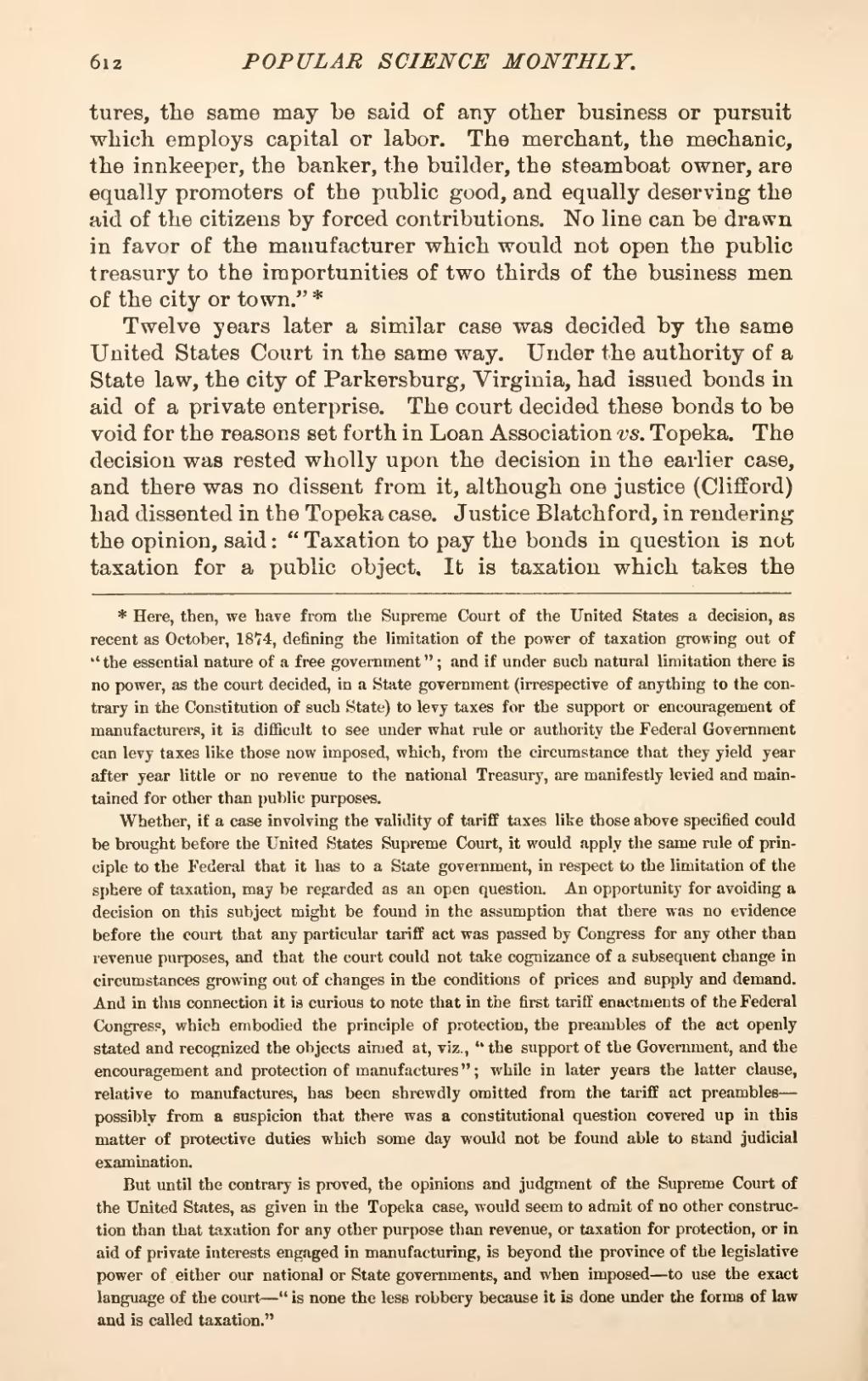tures, the same may be said of any other business or pursuit which employs capital or labor. The merchant, the mechanic, the innkeeper, the banker, the builder, the steamboat owner, are equally promoters of the public good, and equally deserving the aid of the citizens by forced contributions. No line can be drawn in favor of the manufacturer which would not open the public treasury to the importunities of two thirds of the business men of the city or town."[1]
Twelve years later a similar case was decided by the same United States Court in the same way. Under the authority of a State law, the city of Parkersburg, Virginia, had issued bonds in aid of a private enterprise. The court decided these bonds to be void for the reasons set forth in Loan Association vs. Topeka. The decision was rested wholly upon the decision in the earlier case, and there was no dissent from it, although one justice (Clifford) had dissented in the Topeka case. Justice Blatchford, in rendering the opinion, said: "Taxation to pay the bonds in question is not taxation for a public object. It is taxation which takes the
- ↑ Here, then, we have from the Supreme Court of the United States a decision, as recent as October, 1874, defining the limitation of the power of taxation growing out of "the essential nature of a free government"; and if under such natural limitation there is no power, as the court decided, in a State government (irrespective of anything to the contrary in the Constitution of such State) to levy taxes for the support or encouragement of manufacturers, it is difficult to see under what rule or authority the Federal Government can levy taxes like those now imposed, which, from the circumstance that they yield year after year little or no revenue to the national Treasury, are manifestly levied and maintained for other than public purposes.
Whether, if a case involving the validity of tariff taxes like those above specified could be brought before the United States Supreme Court, it would apply the same rule of principle to the Federal that it has to a State government, in respect to the limitation of the sphere of taxation, may be regarded as an open question. An opportunity for avoiding a decision on this subject might be found in the assumption that there was no evidence before the court that any particular tariff act was passed by Congress for any other than revenue purposes, and that the court could not take cognizance of a subsequent change in circumstances growing out of changes in the conditions of prices and supply and demand. And in this connection it is curious to note that in the first tariff enactments of the Federal Congress, which embodied the principle of protection, the preambles of the act openly stated and recognized the objects aimed at, viz., "the support of the Government, and the encouragement and protection of manufactures"; while in later years the latter clause, relative to manufactures, has been shrewdly omitted from the tariff act preambles—possibly from a suspicion that there was a constitutional question covered up in this matter of protective duties which some day would not be found able to stand judicial examination.
But until the contrary is proved, the opinions and judgment of the Supreme Court of the United States, as given in the Topeka case, would seem to admit of no other construction than that taxation for any other purpose than revenue, or taxation for protection, or in aid of private interests engaged in manufacturing, is beyond the province of the legislative power of either our national or State governments, and when imposed—to use the exact language of the court"—is none the less robbery because it is done under the forms of law and is called taxation."

